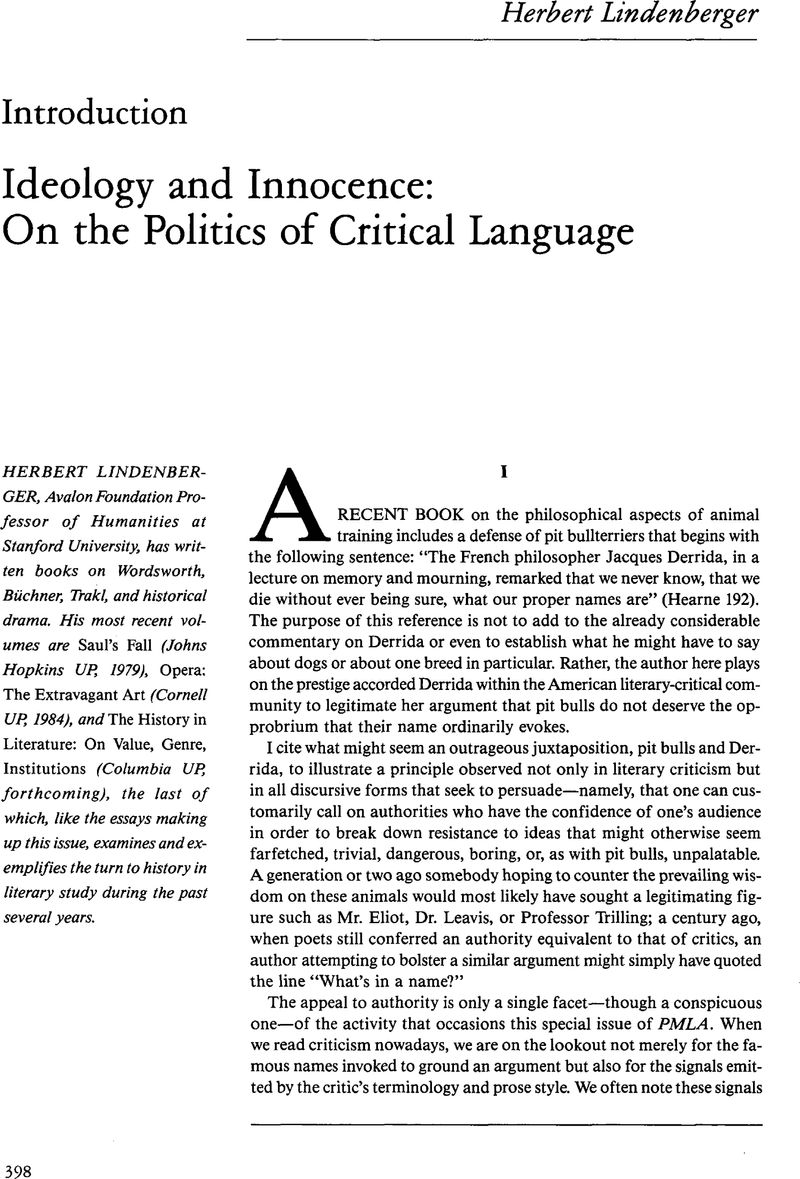Crossref Citations
This article has been cited by the following publications. This list is generated based on data provided by Crossref.
Rabinowitz, Peter J.
1993.
Introduction: Readings of Narrative, 1937–87: Beyond Orthodoxy.
PMLA/Publications of the Modern Language Association of America,
Vol. 108,
Issue. 3,
p.
410.
Danneberg, Lutz
and
Schönert, Jörg
1996.
Wie international ist die Literaturwissenschaft?.
p.
7.



